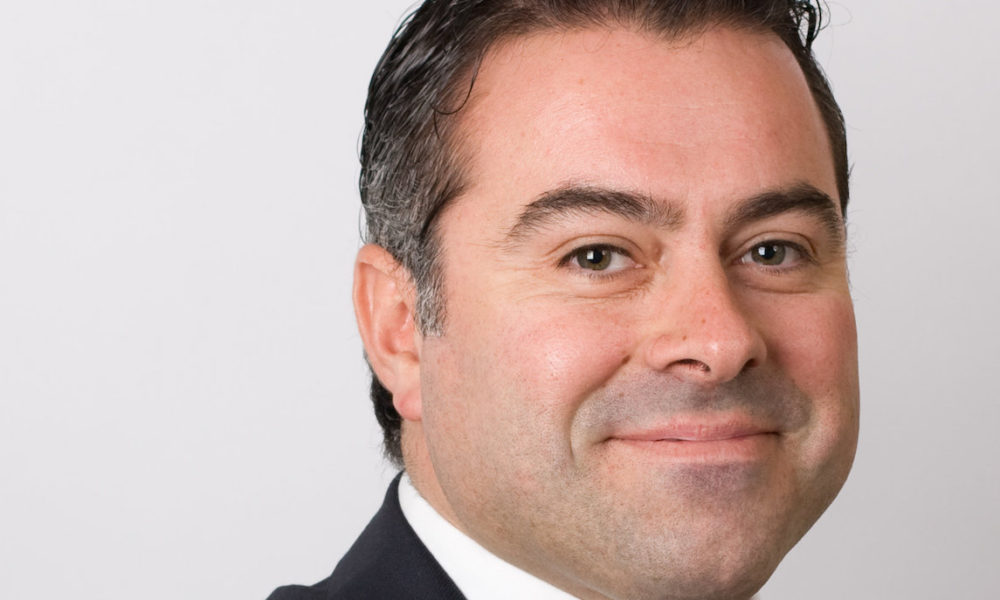
It is one of the technology companies of the moment. In just a few years, ServiceNow has managed to become a benchmark for some of the technologies that are going to have the most projection in the near future, such as the automation of all types of processes, the connection of platforms or the development of applications using Low-Code technologies. / No-Code.
A few weeks ago, the company presented “San Diego”, the latest version of a platform that, thanks to the use of AI and new integrations and RPA’s, offers companies almost everything they need to automate any repetitive manual task, streamline processes and help increase employee productivity while reducing human error.
About the plans for the future that they have in ServiceNow and how they see a moment of clear change in the digital transformation of companies, we had the opportunity to chat with Ernest Calvin, its vice president for the Mediterranean area, who after spending more than ten years working at Salesforce, decided shortly before the pandemic to start this new business venture.
[MCPRO] ServiceNow defines itself as a deeply innovative company. What exactly does this commitment to innovation translate into?
[Ernest Calvet] It is a company with very high growth, with a great commitment to innovation. So much so that just as I am convinced that Salesforce was the most innovative company of the past decade, we believe that ServiceNow is going to be the most innovative of this one.
Among other things, because if you look at our competition, although we find it in different niches and some specific technologies, in reality we do not have a clear competitor. Nobody does what we do. We have an approach in which we bet on both organic growth and organic innovation. We buy companies, but we do it more for the talent of their professionals than for their application, since later we usually rewrite it from scratch, so that it becomes integrated naturally into the platform… not as a simple addition.
And then there is our hyperautomation proposal, having a platform that automates all kinds of processes and that is unique, in the sense that it allows connecting practically any area of the company.
We have been leaders and we are leaders in the automation of the technology department, which is where ServiceNow was born, but later we have extended it to the management of the customer and employee experience, which can now develop any type of application with low-code.
All this fully integrated into a platform that allows you to connect the different platforms. We are the platform of platforms: we ensure that companies that have made huge investments in other platforms can make them profitable. By connecting all these siled platforms and applications, we can make them work together.
[MCPRO] Now that it seems that we are beginning to forget about masks and that even the pandemic seems like a bad dream, perhaps it is time to take stock. How have these last two years been for Service Now?
[Ernest Calvet] I think that the technological world has been the one that perhaps has had the least impact. The need for companies to automate and improve their digital experience has been very clear and we have not been the exception.
At a global level, in recent years we have had a growth of between 28% and 33% and in Spain, we have registered a similar growth. In other words, although the impact that a pandemic can have is never good, for us at the business and results level it has been.
Both in new clients and in existing clients, we have seen how companies have chosen to reinforce their entire technological area and in fact, those that have invested in technology have been the ones that have really been able to navigate these confusing and difficult times.
And the pandemic may have been the “excuse”, but it has also been a catalyst to speed up the process of digital transformation. In the Spanish case, we have noticed that more clients have turned to us to streamline issues, such as hybrid work or intelligent client management. We were the first to manage workspaces that allow you, when someone returns to the office, to maintain security measures against COVID using technology.
We also have examples such as the Scottish Government, which has been able to carry out all vaccine management with ServiceNow, as well as that of Germany, using applications developed ad hoc for a moment and a specific need and that can be done in a really simple way using low-code technology.
We are seeing a very large growth in everything related to low-code and we agree with the forecast made by analysts that millions and millions of applications are going to be developed in this way.
[MCPRO] In this context, it is worth reflecting on how it is increasingly difficult for companies to attract and retain talent, who have to be able to offer something more. Is there no way back for hybrid work?
[Ernest Calvet] We are seeing what is happening in the United States (the phenomenon known as the great resignation) and we are going to see how it will end up in Spain. We already have many cases, of people who do not want to spend five days in the office, who want to be able to enjoy a hybrid job that allows them to have that flexibility. And for that, systems that support this type of work are needed.
And I think that although there may be companies that have a more conservative mentality and that this way of working may go against their own company culture, in all of them there is a clear vision that there is no turning back: the new hybrid work is here for stay. People who want to work in the office will coexist with others who prefer to go less, or not at all. I believe we are heading towards a full hybrid working world and we at ServiceNow are the case.
Will there be resistance to change? Of course. But companies that don’t want to change will find it increasingly difficult to attract and retain talent.
[MCPRO] One of the great novelties of San Diego is the firm commitment to RPA and process automation. It’s something we’ve been hearing a lot about in recent months, about how companies can detect inefficient processes, bottlenecks… and be more competitive. How is your vision in this field?
[Ernest Calvet] It’s part of core of what we do. In addition to doing a process analysis process on our platform, we have partnership with companies like Celonis, who help us to identify certain processes in which ServiceNow is not involved and in which we can act.
The robotics part is a part that is curious, because it is precisely one of those solutions that we buy that we rewrite and that we incorporate. We work with companies that have very advanced solutions in this field and what we do is incorporate this robotics in a transparent way for the user so that we can hyper-automate, also thanks to other technologies such as AI or machine learning.
We are the leaders in process automation, that is, we are considered by any analyst to be the leaders in this field.
[MCPRO] In this automation, one of the brakes that most hinder digital transformation processes in companies is the presence of silos, not being able to work with information in a unified way. How do you do to break these information barriers?
[Ernest Calvet] This is exactly the value that ServiceNow has. A platform that allows you to connect with the different platforms, but not only at the level of integration, that is, not only capture data that comes from another platform, but also create these digital workflows that allow you to go to different platforms that are already in the in the company.
What we do is provide a clear database that allows us to have this vision of an architecture, of a single data source, which allows, precisely, that all these silos that exist (it is the great problem to the great challenge that companies have, especially of a certain size) the power to join them.
[MCPRO] In the specific case of Spain, 52% of current jobs are at risk of being partially or fully automated in the next decade. What impact do you think this will have on the job market?
[Ernest Calvet] We always talk about reinventing, not eliminating, and this has happened with all the new technologies that have caused a great change, such as the industrial revolution itself.
There has always been this concern, how the automation of certain processes can leave out certain profiles. What many of us are doing is reinventing these profiles. If you have someone who is doing a routine task, which does not add any value, first you run the risk that they will end up leaving the company, because nobody wants to work on tasks that are boring, repetitive, etc.
If you don’t convert this person and make sure that thanks to their work, thanks to the knowledge they have, they can contribute much more…this becomes the great challenge that companies are going to have. But having said this, for all companies, the great objective that they are going to have in the coming years is how to automate all processes.
And that’s where we have a vision for ServiceNow, to go from $5 billion today to $15 billion by 2025. That’s where we see the big opportunity.
[MCPRO] In this same line, low-code seems to be presented as one of the great technological revolutions that reaches companies in this 21st century. To what extent do you think it will have an impact and how do you see it being demanded or adopted?
[Ernest Calvet] If you manage to make an application 90% non-code, you will greatly speed up the way of working in any company. The rate of growth of applications that are going to be necessary cannot be supported by the developers we have today.
If you look at our customer or employee experience management solutions, they are complemented by the low-code/no-code platform. Obviously, code is still needed, but it is very different that you only need 5% of code for what you need to do with an application, than 50% or even having to create something completely customized from scratch.
We see an incredible opportunity here. We are one of the leading players in these types of platforms and if you look at what our customers are doing with them, it is absolutely fantastic. IT departments see that with platforms like Service Now, there are business departments that are already developing their applications.
The job for IT departments is to create the “Government” and for these applications to integrate. And this is a reality that is happening and that either impacts or will impact all technology departments. In fact, in many companies, “technologists” are being hired for departments such as HR, or customer service, to “bridge” with the IT department and facilitate the development of this type of application.
[MCPRO] What goals do you have for next year?
[Ernest Calvet] I think that the growth that we are going to have is going to be very similar to what we have had so far. The company has made a particularly important commitment to the Spanish market this year.
We are hiring a lot of people with all kinds of profiles, not only for the sales department, but also for engineering, consultants who help us work on implementations, but also on projects with clients strategically, and we are investing a lot. I think that in Spain we are a reflection of the growth that Service Now is going to have at an international level.




